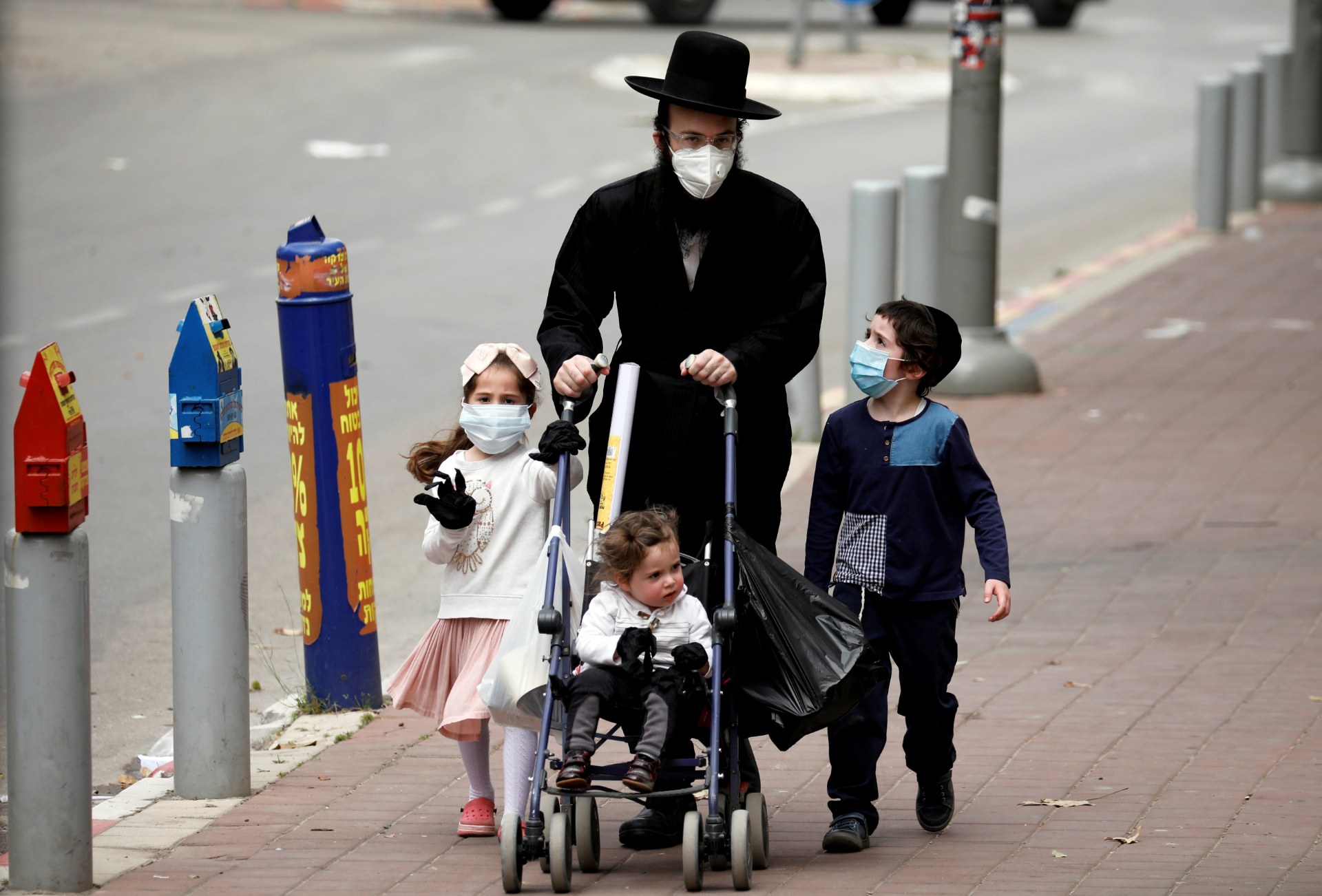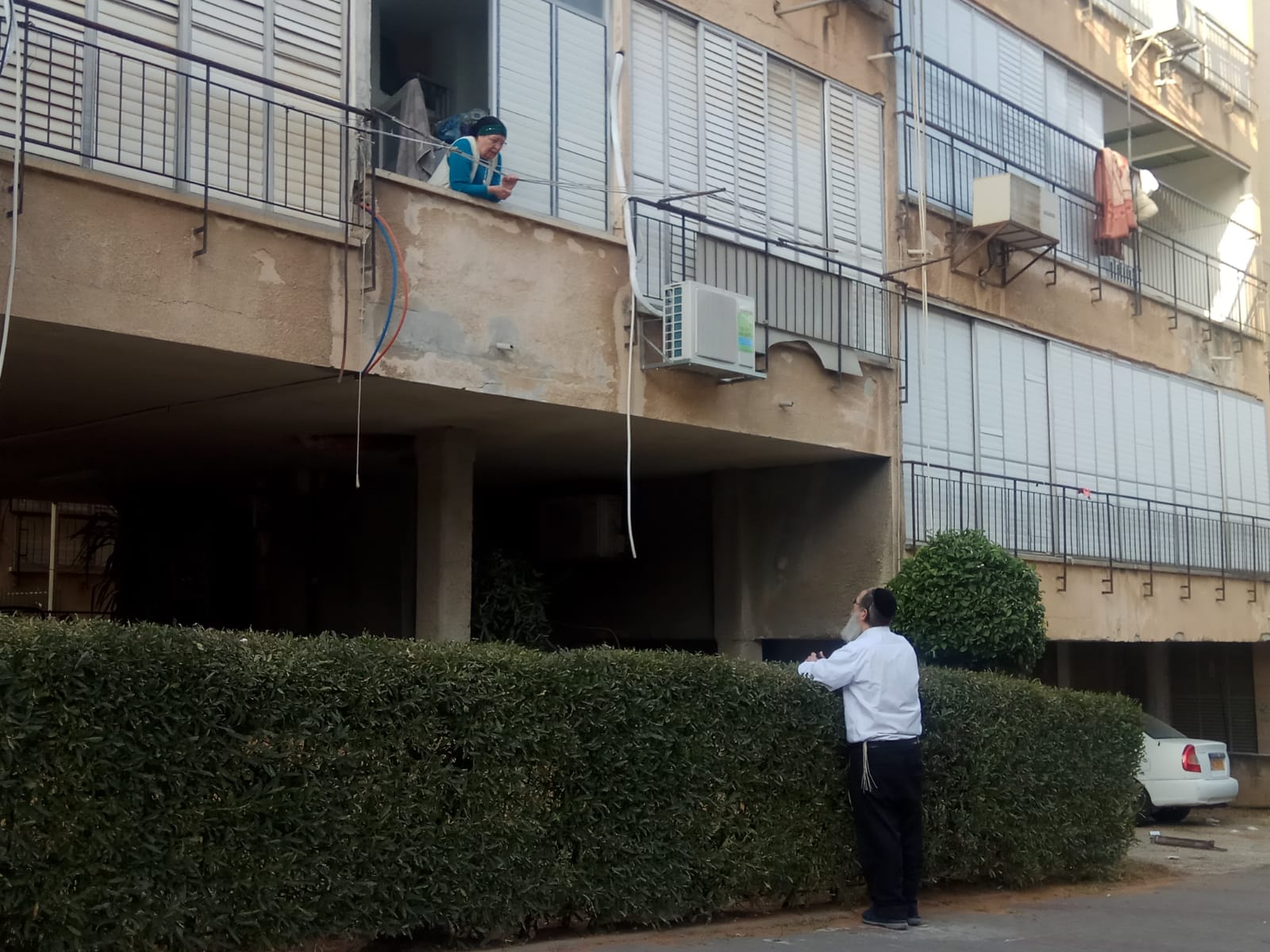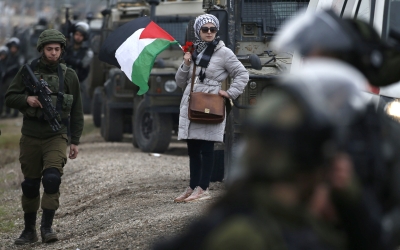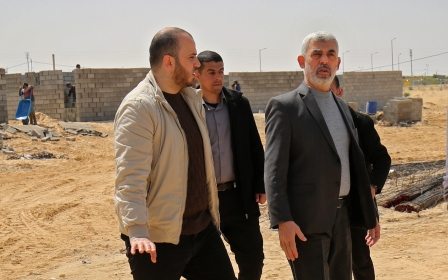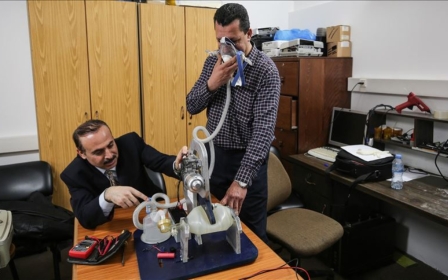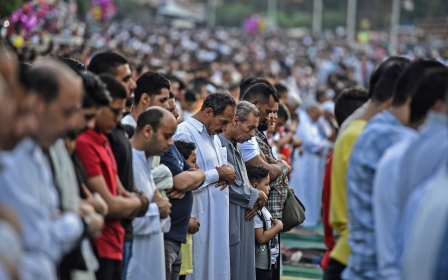Fear and loathing in Israel's locked-down Ultra-Orthodox city
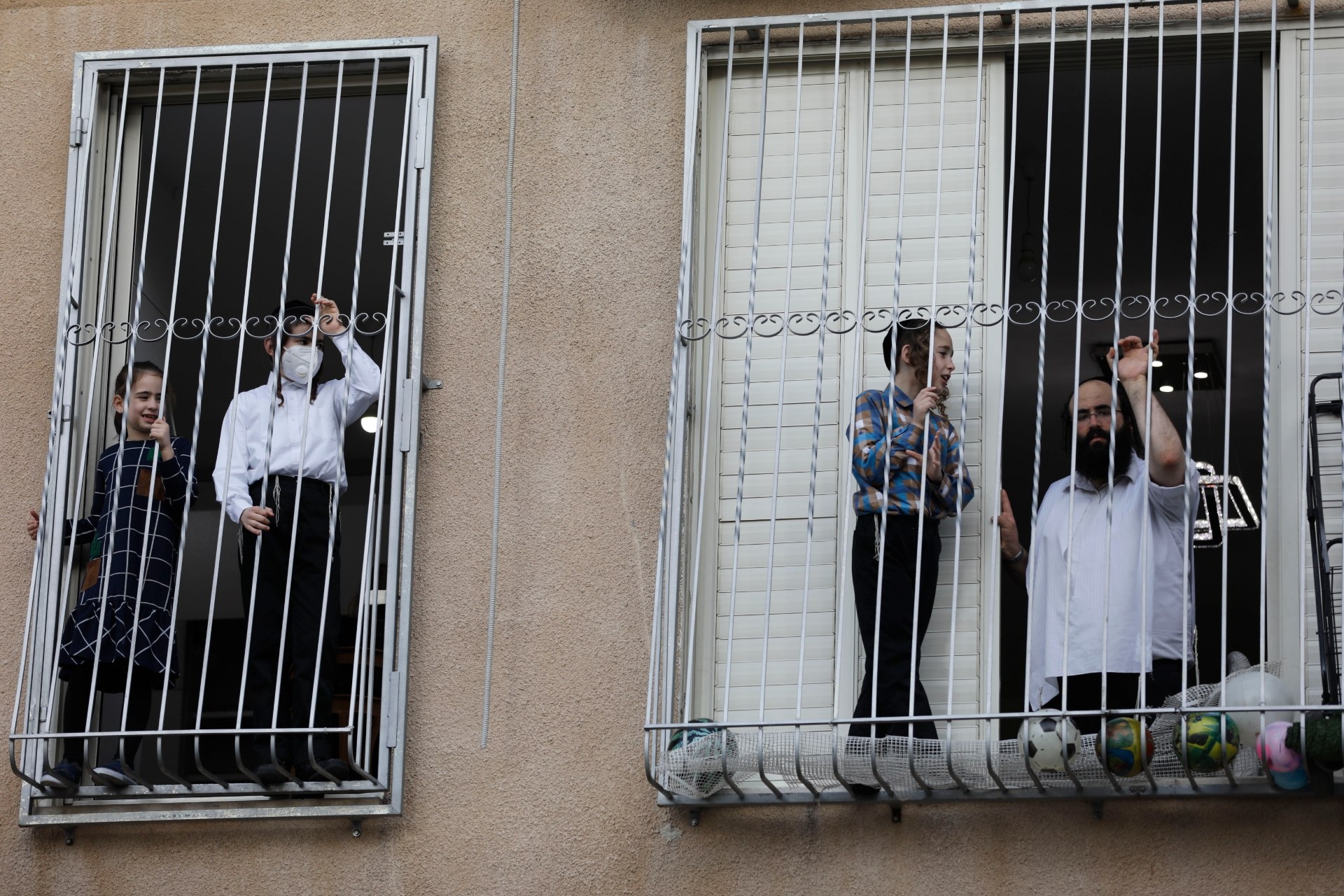
Yisrael Black served in an elite military unit, works in tech and is a witty guy - all the credentials common to the privileged in Israeli society.
Meanwhile, he also wears a black kippah (skullcap) and is an Ultra-Orthodox Jew, also known as Haredi. This week his world was turned upside down, as he began to feel the effects of a current in Israeli society blaming Haredi communities for the spread of coronavirus.
“I went to the supermarket in a secular neighbourhood,” Black told Middle East Eye, describing his humiliation at the door as another shopper told him to stay extra distant because he was identifiably Ultra-Orthodox.
'Who would have thought that in 2020 in Israel I would need to hide my kippah?'
- Yisrael Black, Haredi Israeli
“So inside the supermarket I did my shopping with a hood over my head. Who would have thought that in 2020 in Israel I would need to hide my kippah?” he added sadly.
Shimon Librati, a Haredi from the majority Ultra-Orthodox city of Bnei Brak, has a similar tale. “Listen to this nightmare of a story,” he tells MEE.
New MEE newsletter: Jerusalem Dispatch
Sign up to get the latest insights and analysis on Israel-Palestine, alongside Turkey Unpacked and other MEE newsletters
“My elderly mother-in-law suffered a medical complication and needed to go to the hospital. Apparently there is a new regulation that says that any Bnei Brak resident must be segregated from other patients.”
Librati’s mother-in-law was put in a ward with coronavirus patients, despite displaying none of the symptoms.
“She pleaded with them. The previous day she had undergone a treatment that suppresses her immune system. If she catches the virus it could mean her life. They paid no attention,” he says.
These are relatively common examples of the scapegoating that Haredi Israelis are now facing. Many others are far more serious.
Israel has 8,611 confirmed cases of Covid-19, with 56 deaths. In Jerusalem, around half of those infected come from the Ultra-Orthodox minority.
Official decisions and a media discourse painting Haredi communities as coronavirus incubators have stoked an atmosphere where suspicions that all Ultra-Orthodox Jews carry the virus are now widespread.
The unprecedented decision to impose a total lockdown on Bnei Brak, the largest Haredi city with a population of 210,000, has helped encourage numerous popular memes depicting the Ultra-Orthodox spreading Covid-19.
Meanwhile, major hospitals in the centre of the country have instructed staff to promptly segregate every Haredi woman giving birth and treat her as a confirmed coronavirus patient. These mothers will subsequently have their babies under inferior conditions and be separated from their newborns immediately afterwards.
The government is now discussing whether to place other Haredi neighbourhoods and communities under lockdown as well.
Haredi leaders' missteps
This hostility towards the Haredi community has a particular root.
Since the outbreak of coronavirus in Israel last month, the Haredi leadership has made every conceivable mistake in its response.
First they discounted precautionary warnings, ignoring the danger and urging the Ultra-Orthodox community to uphold a normal routine. Notably, supreme Haredi religious authority Rabbi Chaim Kanievsky ordered the continuation of regular Torah study for adult yeshiva students and children in heder (elementary school), citing the ancient principle that the holy text provides the ultimate protection and rescue.
Coincidentally, Israel’s current health minister, Yaakov Litzman, is also the leader of the Haredi political party United Torah Judaism.
His failure to address the looming danger and his attempts to exempt synagogues from the prohibition on mass gatherings demonstrate more than anything else the failure of Haredi political leadership in this crisis.
The results are grim. Haredi towns have become pandemic hotspots, with higher incidence of the illness both in absolute terms and proportionally to their population.
Only when people in Haredi enclaves began dying of the virus did the leadership wake up - by which time, it was far too late.
With these missteps and outbreaks, the reasoned discourse so imperative at this time has now been layered with some very harsh generalisations, providing broad cover for people whose opinion of the Haredi minority has always been negative.
For Israel’s Ultra-Orthodox, the day after coronavirus is a prospect no less frightening than the illness itself. They fear they are liable to find themselves discriminated against, humiliated and ostracised en masse.
The average Israeli finds it difficult in any case to understand the complexities of Haredi life, and thus has little basis to comprehend the grave fracture represented by the current situation.
This new epidemic is on a collision course with every basic aspect of daily life for Haredim: gathering together, public prayer, and the perpetual embrace of extended family and friends.
Take your typical Bnei Brak family: father, mother and nine children live in what began as a three-room apartment that gradually expanded with legally dubious, patched-together renovations. The balcony was enclosed; the original three rooms became five plasterboard-walled cubicles.
Everyone living there is completely disconnected from the internet. This family is not culturally constructed to be at home. Normally the children are always at school, the young adults are at their yeshiva. Other than that, their connection to the outside world is via major family occasions, regular ritual bathing at the mikveh, and (for men) gathering three times a day at the centre of daily life: the synagogue.
In that context, keeping children occupied at home, in such a home, for weeks at a time without Netflix or computer games is a herculean task. Similarly keeping a family clothed and fed is increasingly tricky while trying to shop for necessities when movement is restricted.
Ghost town
Last Friday night MEE took a car ride through Bnei Brak. The sun was setting and a veil of sadness seemed to stretch across the sky.
Normally a bustling city - its streets crowded with small children looking sweet in their Shabbat best, girls in long skirts and braided hair, men in their distinctive fur-trimmed hats racing between the mikveh and the synagogue - Bnei Brak looked like a ghost town. The streets were utterly deserted. From every cramped balcony, children peered out through the grating, seeking a breath of fresh air.
In some of the densely crowded neighbourhoods, the Haredi version of the new international phenomenon of balcony singing was evident. From giant speakers came Shabbat melodies, some of them sung and played live by wedding singers and musicians trying to bring some cheer to their despondent neighbours.
Masses of people joined in the singing, soon to blend with the benign sound of Friday night horns that signal the official start of Shabbat.
On Wednesday the big night will arrive: Passover Eve.
Pre-holiday preparations involve a days-long festival of cleansing the home of any trace of hametz (crumbs of anything not kosher for Passover), buying new clothes and gifts, and, especially, the continual purchase of foodstuffs. To avoid any inadvertent consumption of hametz, families organise an enormous supply of appropriate food that will last the family for the entire holiday week.
In this city of crowding and poverty, where, even in ordinary times, life is lived hand to mouth, the Passover pantry is built on organised, discounted sales.
There is also a tradition of kimcha defischa (Aramaic for “the flour of Passover”), upheld by wealthy Jews all over the world who make charitable donations that underwrite people’s groceries for the holidays.
Every street corner in Haredi towns sprout a distribution kiosk with mountains of vegetables, meat and fish, and matzah, among other produce. A steady stream of residents appears to collect food for their families.
This year the city is silent, under siege, no one coming or going. Checkpoints are placed across its streets, soldiers and police are on patrol. All activity is snuffed out.
The government has succeeded in creating a hermetically sealed closure on Bnei Brak, but has apparently given no serious thought to alternative solutions for its residents. No donations are arriving from wealthy Jews worldwide, the big box stores in nearby suburbs are inaccessible, and the fear is enormous.
It seems like nearly every household has someone ill with the coronavirus, or at least one person with symptoms.
Over 1,300 people have been tested positive in the city, but the true number of cases is likely far higher. Some refuse testing for fear of being forcibly separated from their children on Passover Eve. No provisions have been made by authorities for children left behind by parents forced to isolate.
At my parents’ Passover seder, almost every year there were new generations of children and grandchildren celebrating together. This year, my parents are alone.
Most Haredi families will observe Passover alone, too - with the ground crumbling underfoot. The extended family connection, the bedrock of community and financial support, all are missing, and along with this human suffering comes a new sense of persecution.
The folks in the surrounding neighbourhoods, watching Netflix and congregating on Zoom, see their Haredi neighbours as responsible for all the evil in the world now: Go away, lepers! We don’t want to hear you chanting on Passover Eve, "Why is this night different?"
This night is really, really different, isn’t it? And how.
This article is available in French on Middle East Eye French edition.
Middle East Eye delivers independent and unrivalled coverage and analysis of the Middle East, North Africa and beyond. To learn more about republishing this content and the associated fees, please fill out this form. More about MEE can be found here.


